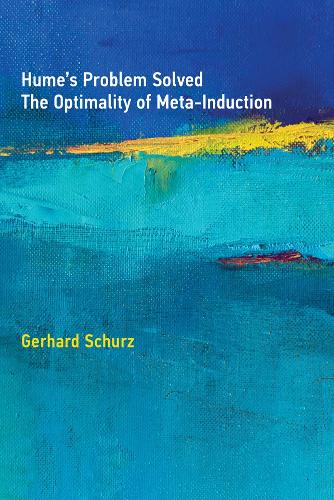
Hume's Problem Solved: The Optimality of Meta-Induction
(Hardback)
Publishing Details
Hume's Problem Solved: The Optimality of Meta-Induction
By (Author) Gerhard Schurz
MIT Press Ltd
MIT Press
7th May 2019
United States
Classifications
Professional and Scholarly
Non Fiction
161
Physical Properties
Hardback
400
Width 152mm, Height 229mm, Spine 27mm
Description
A new approach to Hume's problem of induction that justifies the optimality of induction at the level of meta-induction.Hume's problem of justifying induction has been among epistemology's greatest challenges for centuries. In this book, Gerhard Schurz proposes a new approach to Hume's problem. Acknowledging the force of Hume's arguments against the possibility of a noncircular justification of the reliability of induction, Schurz demonstrates instead the possibility of a noncircular justification of the optimality of induction, or, more precisely, of meta-induction (the application of induction to competing prediction models). Drawing on discoveries in computational learning theory, Schurz demonstrates that a regret-based learning strategy, attractivity-weighted meta-induction, is predictively optimal in all possible worlds among all prediction methods accessible to the epistemic agent. Moreover, the a priori justification of meta-induction generates a noncircular a posteriori justification of object induction. Taken together, these two results provide a noncircular solution to Hume's problem. Schurz discusses the philosophical debate on the problem of induction, addressing all major attempts at a solution to Hume's problem and describing their shortcomings; presents a series of theorems, accompanied by a description of computer simulations illustrating the content of these theorems (with proofs presented in a mathematical appendix); and defends, refines, and applies core insights regarding the optimality of meta-induction, explaining applications in neighboring disciplines including forecasting sciences, cognitive science, social epistemology, and generalized evolution theory. Finally, Schurz generalizes the method of optimality-based justification to a new strategy of justification in epistemology, arguing that optimality justifications can avoid the problems of justificatory circularity and regress.
Author Bio
Gerhard Schurz is Director of the D sseldorf Center for Logic and Philosophy of Science at Heinrich Heine University D sseldorf.
